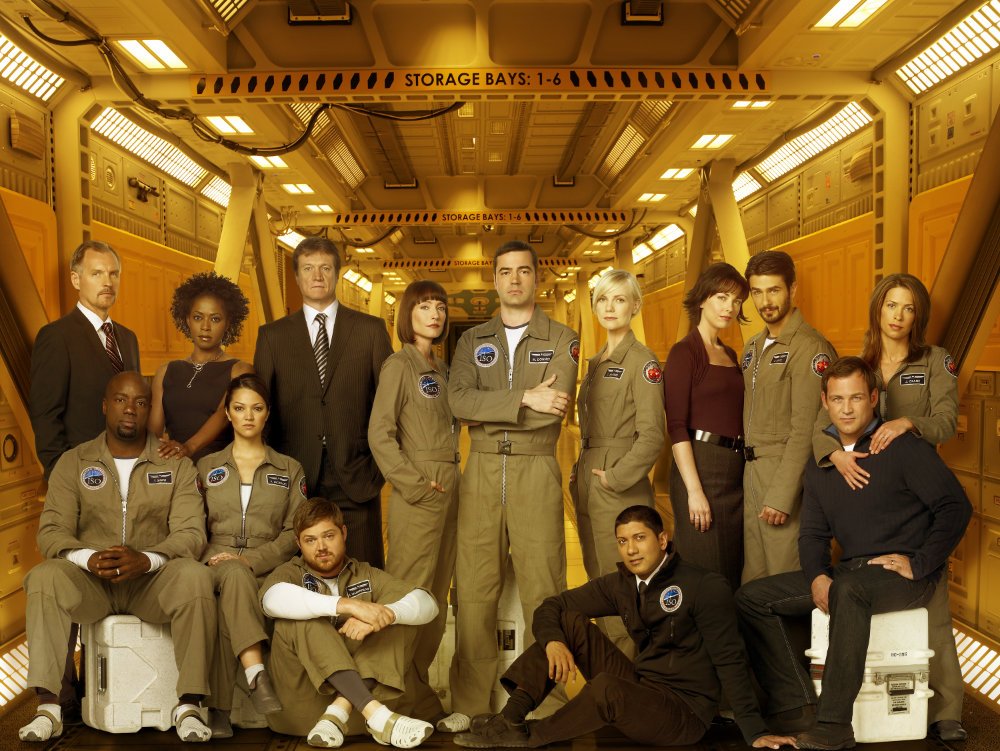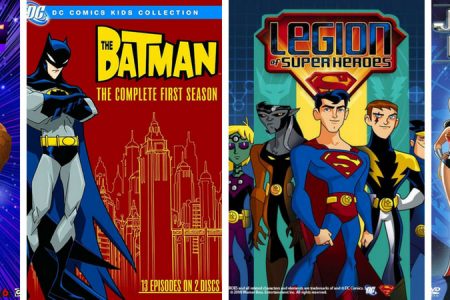Defying Gravity shot itself in the foot with tagline of ‘Grey’s Anatomy in space’ – you can’t afford to have such a negative start to a television series in the current TV climate. It’s tough enough to survive without an inaccurate description creating inaccurate perceptions before the show even starts, which would explain why the series was cancelled after only 13 episodes. This is a great shame because Defying Gravity was shaping up to be a very interesting programme.
The series was inspired by the 2004 BBC drama-documentary series Space Odyssey: Voyage to the Planets, and was a co-production between the BBC (which would explain why we in the UK were able to see the entire 13 episodes, unlike other territories), Fox Television Studios, Omni Film, Canadian Television Network and SPACE, and German broadcaster ProSieben (which explains the international flavour to the cast, even though it feels ostensibly American). It was about the six-year mission of eight astronauts (four men, four women) travelling the solar system on the spaceship Antares, set in the year 2052. Episodes would switch between the mission itself, with instantaneous contact with Mission Command back on Earth, and flashbacks to five years before the mission, when the astronauts were being selected, as well as flashbacks to the previous mission to Mars, which had gone disastrously wrong.
The first episodes tended to emphasise the relationship aspect of the drama and the interactions of the characters over the story itself – there were hints of the central mystery and the reason for the mission, but nothing more. It was only later in the series, around episode 7, that the real heart to the story was explained – and that was when it got interesting. The mission is about Beta, a mysterious alien artefact (an alien? God? Something else?), its effect on the astronauts, and the collecting of its ‘siblings’ from each planet on the solar system (which was the real reason for the first mission to Mars). The last two episodes were the best of the series, as the crew reaches Venus to pick up the next artefact, and the relationship between chief engineer Maddux (Ron Livingstone) and geologist Zoe (Laura Harris), an important part of the story so far (soap opera alert: they had had a fling, but his vasectomy had reversed, so she became pregnant, but aborted the baby because she wanted to be on the mission; however, the abortion had gone wrong and she had a hysterectomy and the relationship had been strained ever since, even though they still had deep feelings for each other), became central to the action.
This relationship helped the series because it was believable and you wanted the characters to get together; this was not the case for a lot of the other relationships in the story. For example, the biologist Jen was married to Rollie, the cap com who had been mission commander, but she had previously been involved with Ted, who replaced Rollie as mission commander (I should have put in another soap opera alert). The trouble is, you don’t believe in any of those relationships at all, or in Ted’s marriage to Eve, the woman with secrets who works for the corporation behind the mission and has executive power of decision in the mission based on her connection to Beta. If you are going to emphasise the relationship angle of your drama, making them viable would seem the healthy option.
It’s a real shame that this series won’t get to wrap things up – if you see the notes from the creator [EDIT: see this link at the Internet Archive], you’ll get an idea of what could have been – because it was good to see a well-done show in space (the CGI was good and production values were high, enough to make you feel that the story was set sufficiently far in the future) that was about capturing a mainstream audience. Also, it had a good idea behind it that was setting up interesting discussions about religion, the human need for beliefs, the ability of humanity to achieve the impossible, and facing your demons. But it was not to be: a good sci-fi programme was cancelled before it got the chance to show its true colours; at least we got to see all 13 episodes in the UK on BBC Two (even if they did push them to late night and show double episodes of the final four).




